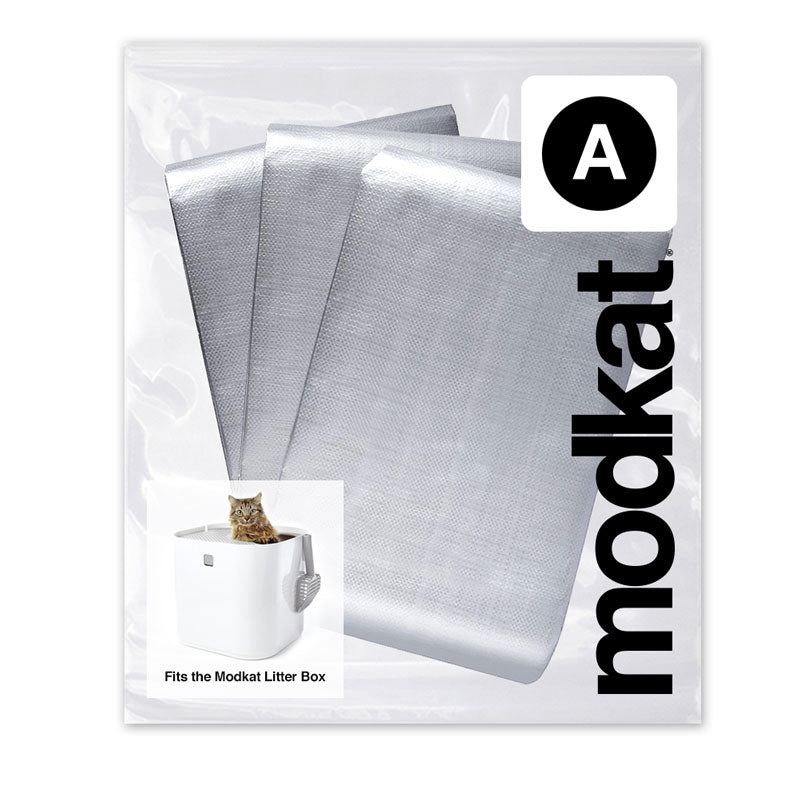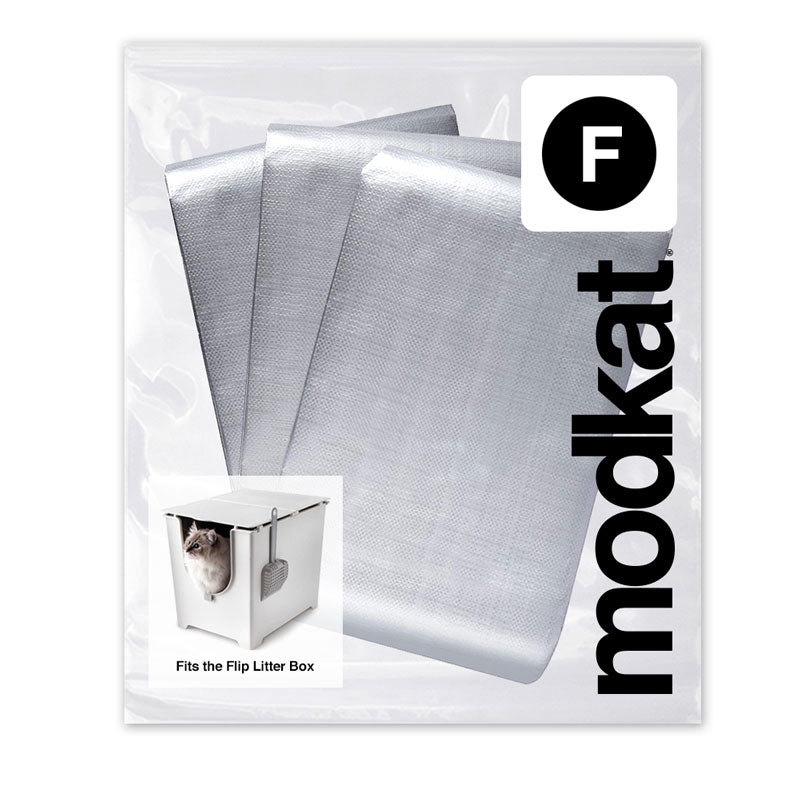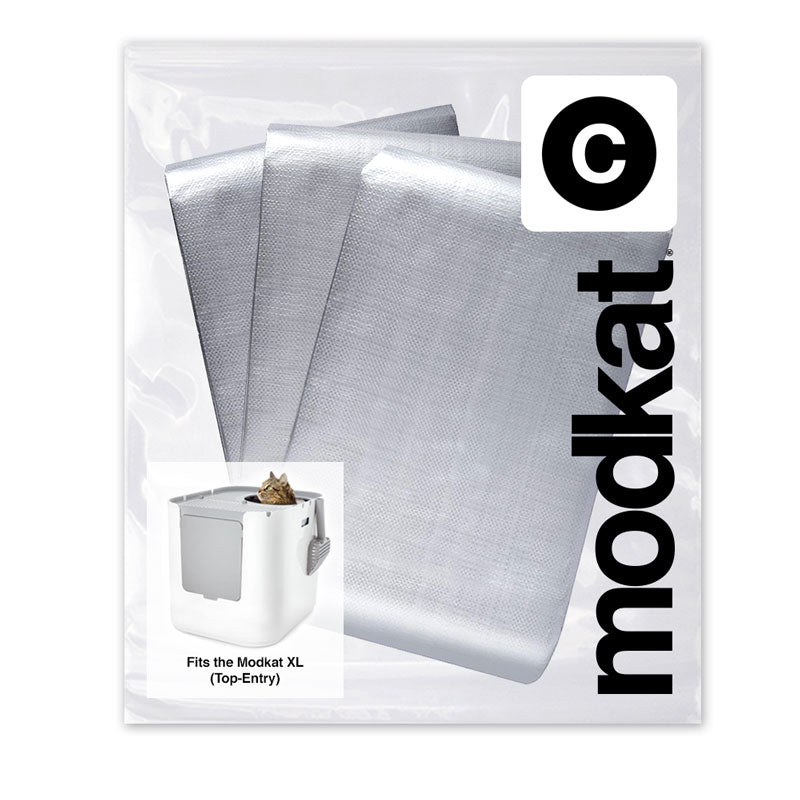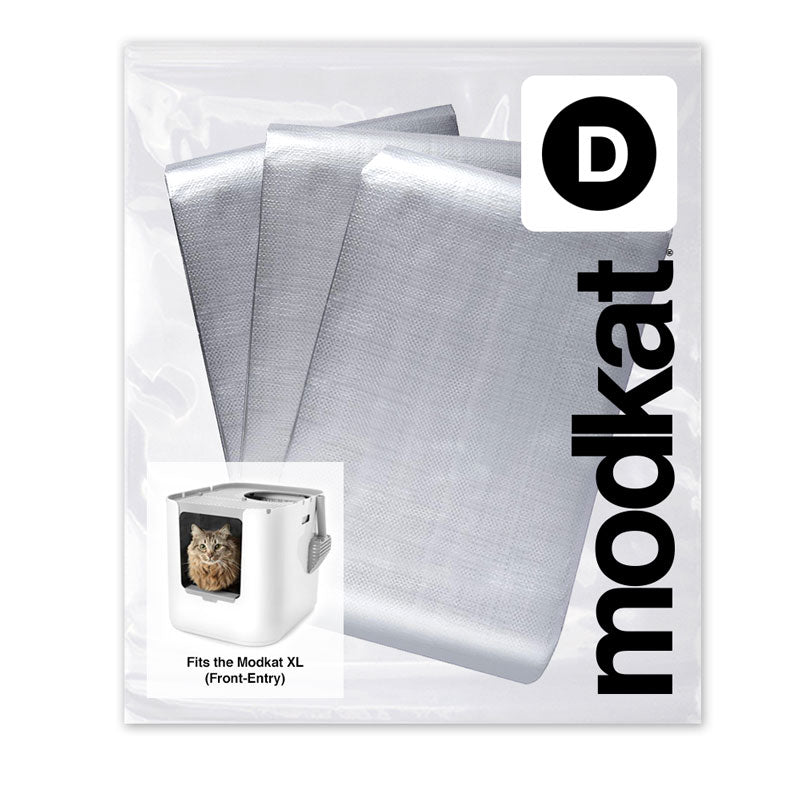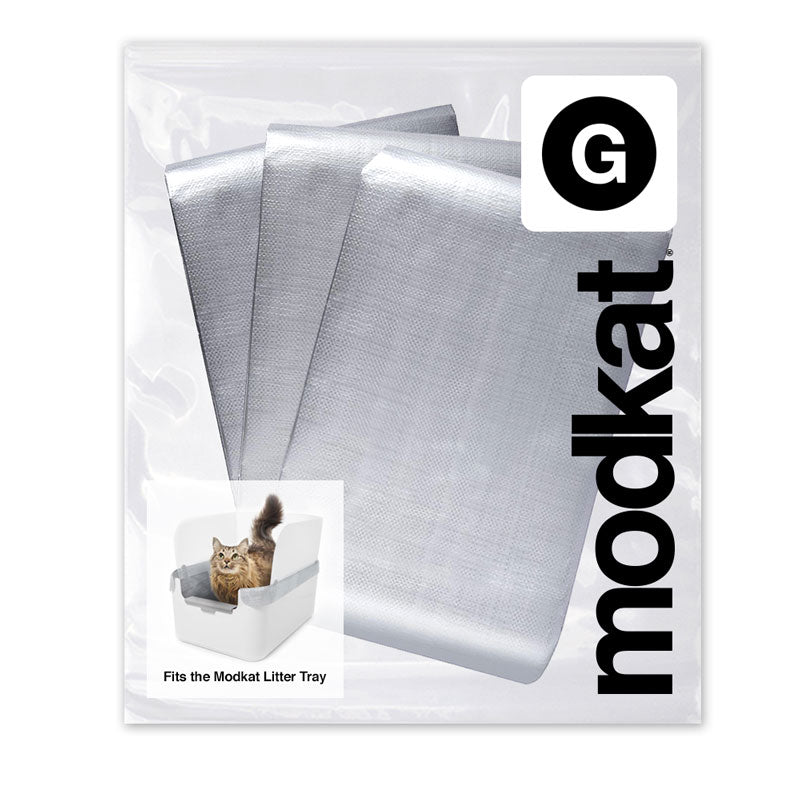Your Cart is Empty
$12 CAD shipping on orders over $62 CAD
$12 CAD shipping on orders over $62 CAD
Litter Boxes
Accessories
Should I worry about my cat’s hairballs?
Ever watched your cat hack up a hairball?
Nasty, right?
Hairballs are not the most pleasant part of being a cat parent, but they come up anywhere from once a year to once a week.
Let's regurgitate the facts on hairballs, and talk about how to prevent and treat them.
Why do cats get hairballs?
Cats sprout 60,000 hairs per square inch on their backs and about 120,000 hairs per square inch on their undersides. That means your cat is carrying around 40 million hairs—give or take a few million depending on the breed.
It takes more than hair to make a hairball, though. Cats have spikes on their tongues to help hold prey in their mouths. These spikes also help them groom by pulling loose hair out of their bodies. Some of that hair gets swallowed where it mixes with goodies in the stomach to become a hairball.
Can hairballs make cats sick?
Most hairballs are harmless, but some can have life-threatening consequences. A large or hard hairball can block a cat’s digestive tract, preventing elimination. It can also cause the cat to stop eating.
Signs and symptoms of hairball impaction in cats include include:
- Constipation
- Diarrhea
- Lethargy
- Persistent vomiting or retching without producing a hairball
- Diminished appetite
* If your cat shows any of the above signs, contact your veterinarian and express your concern about your cat’s hairball issues.
How to prevent hairballs in cats.
Can you eliminate hairballs in cats? Probably not, especially if you have a long-haired kitty. You can, however,help reduce their impact on your cat’s life and health. To help prevent hairballs, try of these tactics:
- Groom your cat regularly. A few grooming tools can remove much of your cat’s loose hair. Select both a bristle brush and a short-tooth comb for short-haired cats and a slicker brush for medium-haired ones. You might also try a hair reducer like the Furminator or a buttercomb.
- Invest in some boredom busters. Cats sometimes over groom out of boredom. Choose engaging toys, gadgets, and games to take your cat’s mind off her ablutions.
- Try a limited antigen diet if your vet or feline nutritionist believes it could be right for your pet.
* Check with your veterinarian before using any oils, butters, gels, or laxatives to help your cat pass a hairball.
Natural hairball remedies for cats.
Can Mother Nature help prevent or minimize hairballs in your cat? As a matter of fact, homeopathic options for cats can be a good choice. Let's take a look at a few:
- Let your cat enjoy pumpkin as a natural laxative. Most cats love this orange vegetable’s taste. Even better, its high-fiber content makes it a great titbit for keeping things moving down below. Give your adult cat ½-1 teaspoon of plain canned pumpkin (not pumpkin pie filling) or of fresh pumpkin baked until soft.
- Apples, carrots, cat grass, and even Metamucil powder can also provide an extra dose of fiber to help keep your cat's digestive tract healthy and your cat happy. That said, be careful not to add too much fiber to your cat's diet. Our pets can get sick from an overdose of fiber, so always check with your vet before making changes to your cat's diet.
- Increase your pet's water intake. A well-hydrated cat will have a healthy stomach and intestinal tract. If your cat turns up her nose at the water you offer, consider investing in a pet water fountain. Some domestic animals don't like the taste or smell of standing water but will lap up liquid that's running.
- Fatty fish such as canned tuna or sardines can help oil your cat's digestive system. You could also try adding a teaspoon of olive oil to your pet's diet once a week to keep things humming. Be sure not to go overboard with fish because too much of this nutritious food can cause thiamine deficiency in cats.
When is that hacking sound not a hairball?
Cats don’t actually cough up hairballs. They vomit them.
Cat hair doesn't come from the lungs but from the digestive tract. If your cat shows signs of labored breathing or excessive coughing, he could have asthma instead of a hairball.
Take him to the vet. If your cat is puking up many hairballs in a week, that could signal a problem, too.
* Again, you should always discuss excessive coughing, vomiting, or hairballs with your pet’s medical professional.
Final thoughts.
Handling hairballs is part of loving a cat. In general, they are a bigger problem for people than for cats because we get tasked with the cleanup.
But keep an eye on your pet. Groom her, feed her nourishing food, and keep her engaged. Any time a pet starts to retch, cough, or throw up, make sure to pay close attention. If something worries you, consult your vet.
Purrr News.
Join our email list and get exclusive access to new products, the best cat litter box health articles, and 10% off your first order.
Products related to this blog:
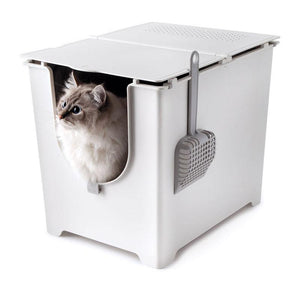
4091 reviews
"This litter box keeps everything in, nothing gets out the sides."
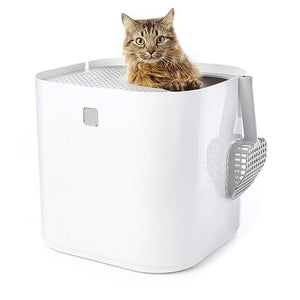
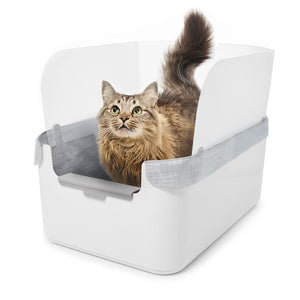
780 reviews
"My beautiful ragdoll cat and I both love the new Modkat Litter tray!"
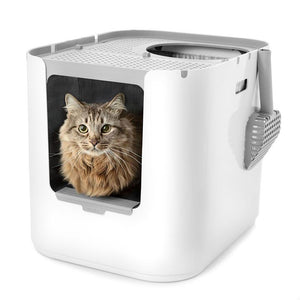
1896 reviews 
"It looks nicer than any other hooded or open option we considered."












